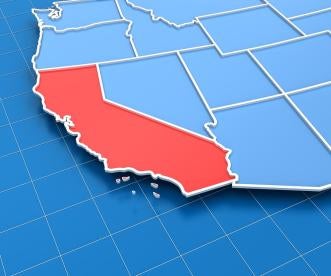On August 13, 2018, the California Supreme Court in Eduardo De La Torre, et al. v. CashCall, Inc., held that interest rates on consumer loans of $2,500 or more could be found unconscionable under section 22302 of the California Financial Code, despite not being subject to certain statutory interest rate caps. By its decision, the Court resolved a question that was certified to it by the Ninth Circuit Court of Appeals. See Kremen v. Cohen, 325 F.3d 1035, 1037 (9th Cir. 2003) (certification procedure is used by the Ninth Circuit when there are questions presenting “significant issues, including those with important public policy ramifications, and that have not yet been resolved by the state courts”).
The California Supreme Court found that although California sets statutory caps on interest rates for consumer loans that are less than $2,500, courts still have a responsibility to “guard against consumer loan provisions with unduly oppressive terms.” Citing Perdue v. Crocker Nat’l Bank (1985) 38 Cal.3d 913, 926. However, the Court noted that this responsibility should be exercised with caution, since unsecured loans made to high-risk borrowers often justify their high rates.
Plaintiffs alleged in this class action that defendant CashCall, Inc. (“CashCall”) violated the “unlawful” prong of California’s Unfair Competition Law (“UCL”), when it charged interest rates of 90% or higher to borrowers who took out loans from CashCall of at least $2,500. Bus. & Prof. Code § 17200. Specifically, Plaintiffs alleged that CashCall’s lending practice was unlawful because it violated section 22302 of the Financial Code, which applies the Civil Code’s statutory unconscionability doctrine to consumer loans. By way of background, the UCL’s “unlawful” prong “‘borrows’ violations of other laws and treats them as unlawful practices that the unfair competition law makes independently actionable.” Citing Cel-Tech Communications, Inc. v. Los Angeles Cellular Telephone Co., 20 Cal.4th 163, 180 (1999).
The Court agreed, and found that an interest rate is just a term, like any other term in an agreement, that is governed by California’s unconscionability standards. The unconscionability doctrine is meant to ensure that “in circumstances indicating an absence of meaningful choice, contracts do not specify terms that are ‘overly harsh,’ ‘unduly oppressive,’ or ‘so one-sided as to shock the conscience.” Citing Sanchez v. Valencia Holding Co., LLC, 61 Cal.4th 899, 910-911 (2015). Unconscionability requires both “oppression or surprise,” hallmarks of procedural unconscionability, along with the “overly harsh or one-sided results that epitomize substantive unconscionability.” By enacting Civil Code section 1670.5, California made unconscionability a doctrine that is applicable to all contracts, and courts may refuse enforcement of “any clause of the contract” on the basis that it is unconscionable. The Court also noted that unconscionability is a flexible standard by which courts not only look at the complained-of term, but also the process by which the contracting parties arrived at the agreement and the “larger context surrounding the contract.” By incorporating Civil Code section 1670.5 into section 22302 of the Financial Code, the unconscionability doctrine was specifically meant to apply to terms in a consumer loan agreement, regardless of the amount of the loan. The Court further reasoned that “guarding against unconscionable contracts has long been within the province of the courts.”
Plaintiffs sought the UCL remedies of restitution and injunctive relief, which are “cumulative” of any other remedies. Bus. & Prof. Code §§ 17203, 17205. The question posed to the California Supreme Court stemmed from an appeal to the Ninth Circuit of the district court’s ruling granting the defendant’s motion for summary judgment. The California Supreme Court did not resolve the question of whether the loans were actually unconscionable.




 />i
/>i

